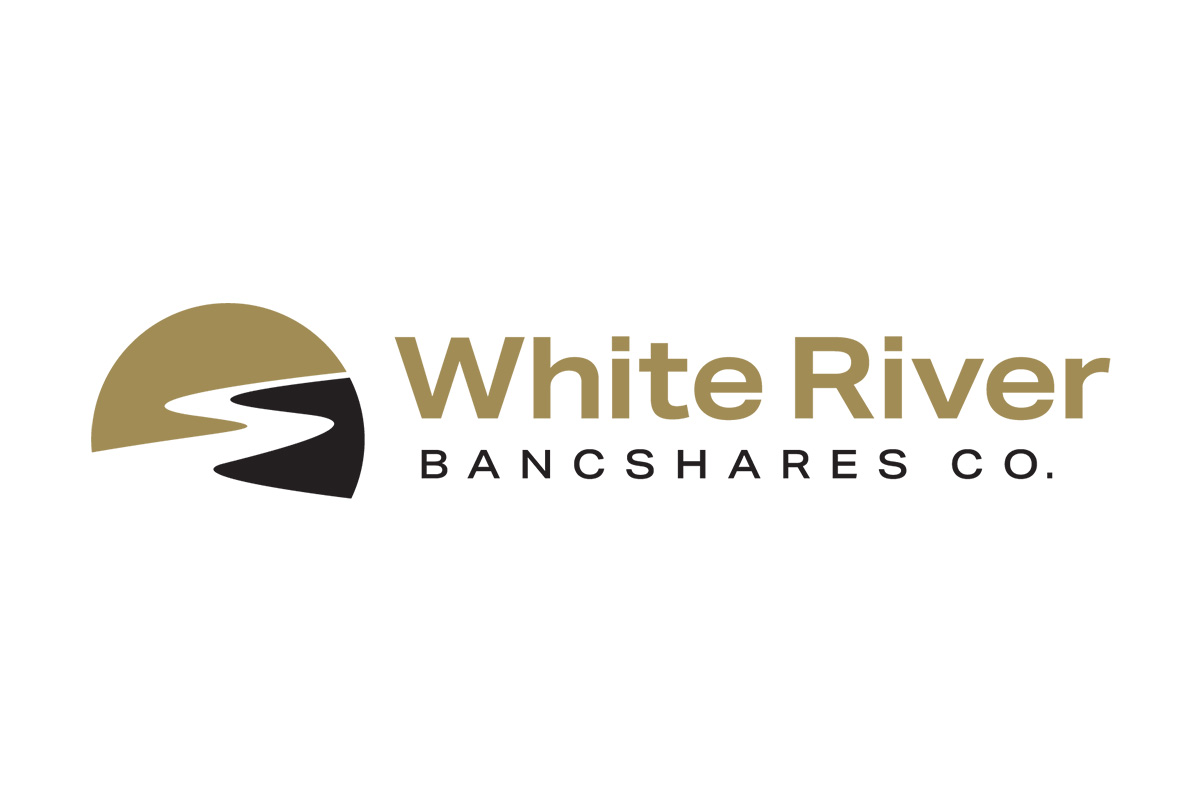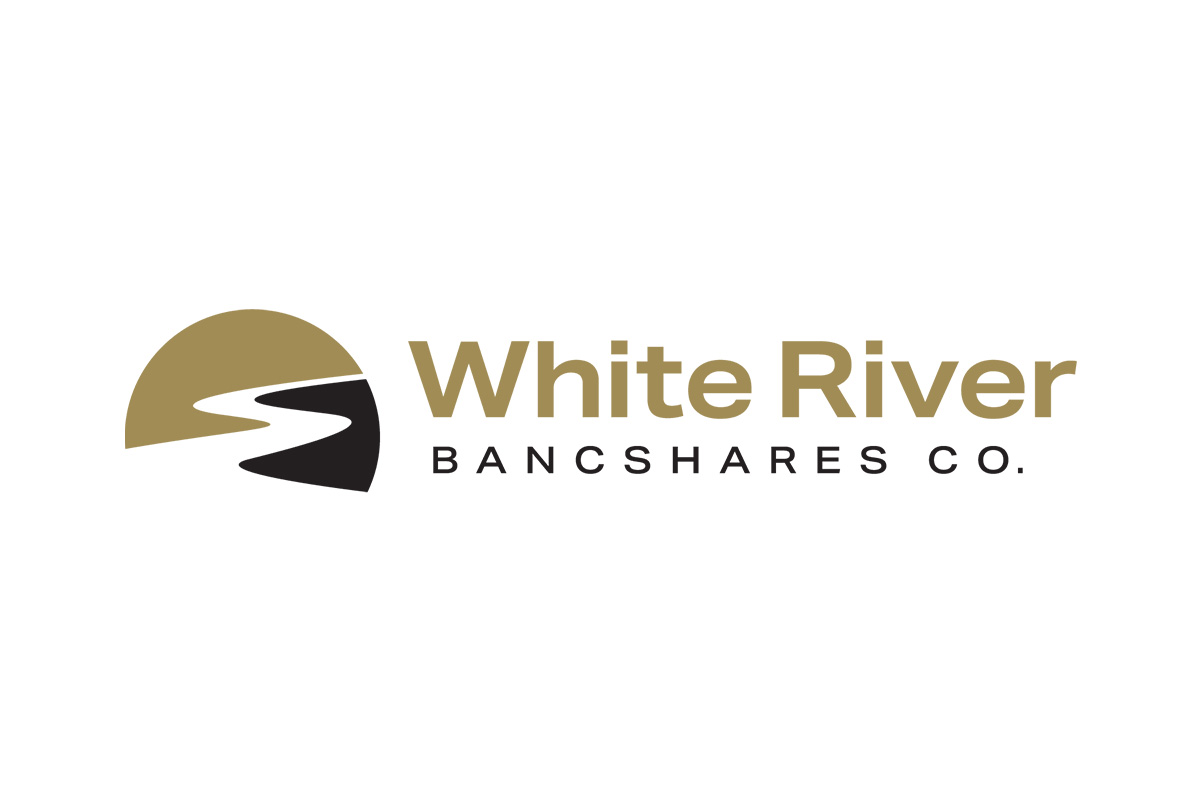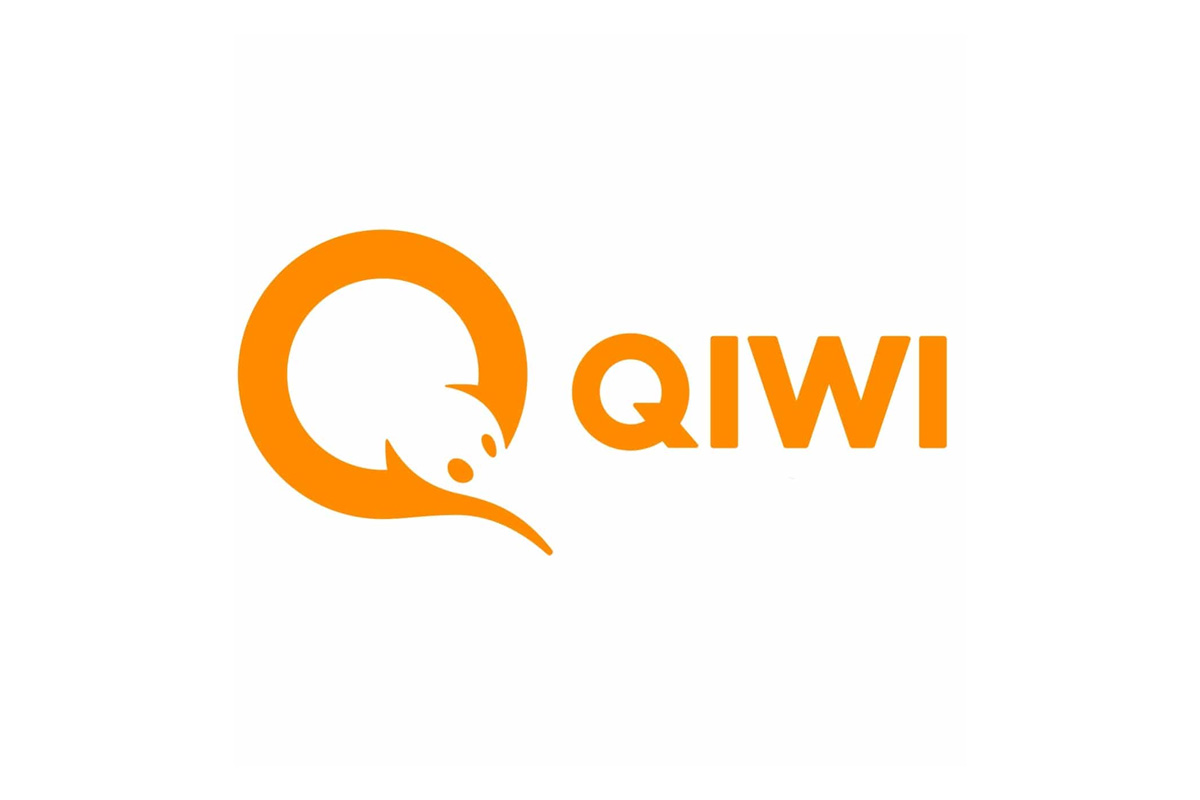Fintech
White River Bancshares Co. Earns $1.79 Million, or $1.79 Per Diluted Share, in Second Quarter 2022; Second Quarter Results Highlighted By Strong Loan Growth and Net Interest Margin Expansion

White River Bancshares Company (OTCQX: WRIV), (the “Company”) the holding company for Signature Bank of Arkansas (the “Bank”), reported net income of $1.79 million, or $1.79 per dilute share, in the second quarter of 2022, compared to $2.08 million, or $2.14 per diluted share, in the second quarter of 2021. In the immediate prior quarter, the Company earned $1.07 million, or $1.08 per diluted share. In the first six months of 2022, net income was $2.9 million, or $2.88 per diluted share, compared to $3.6 million, or $3.75 per diluted share, in the first six months of 2021. All financial results are unaudited.
“Our results for the second quarter of 2022 were highlighted by an increase in net interest income generation and net interest margin expansion,” said Gary Head, President and Chief Executive Officer. “We generated double digit year-over-year growth in both loans and core deposits, in part due to new customer relationships from our existing market locations and new markets in Harrison and Jonesboro that opened earlier this year. As expected, net income for the second quarter was impacted by the reduction in PPP income when compared to the year ago quarter, as we continue to wind down from the unprecedented events of the pandemic. Results were also impacted by the investments we have made in employee retention and in our new market locations. However, we are very encouraged with the progress these new locations are making, as both are exceeding our expectations for growth, and already contributing to operating revenue. We are also making advancements with our plans to enter a new market later this year with the recently formed division of Signature Bank of Arkansas, Banco Sí! This new division will employ bilingual staff as we increase our efforts to better serve Arkansas area Latinos.”
“We continue to strengthen our core funding mix with non-interest bearing deposits increasing 25.0% compared to a year ago, and representing 33.9% of total deposits at quarter end,” said Scott Sandlin, Chief Strategy Officer. “By building out our core deposit base, we are able to fund new loan activity with core deposits and reduce our reliance on borrowed funds, contributing to the net interest margin expanding 26 basis points compared to the second quarter a year ago.”
Second Quarter 2022 Financial Highlights:
- Second quarter net income was $1.79 million, or $1.79 per diluted share, compared to $2.08 million, or $2.14 per diluted share, in the second quarter of 2021.
- Annualized return on average assets was 0.81%, compared to 1.04% in the second quarter a year ago.
- Annualized return on average equity was 9.28%, from 10.95% in the second quarter a year ago.
- Second quarter net interest margin (“NIM”) expanded 31 basis points to 3.87%, compared to 3.56% in the second quarter a year ago.
- There was no provision for loan losses in the second quarter of 2022, or the second quarter of 2021.
- Net loans increased 10.2% to $709.3 million at June 30, 2022, compared to $643.6 million at June 30, 2021.
- Total deposits increased 13.4% to $778.1 million at June 30, 2022, compared to $685.9 million a year ago.
- Noninterest bearing deposits increased 25.0% to $264.1 million at June 30, 2022, compared to $211.3 million a year ago.
- Nonperforming assets totaled $185,000, or 0.02% of total assets at June 30, 2022, compared to almost nil, or 0.00% of total assets, at June 30, 2021.
- Book value per common share was $76.61 at June 30, 2022, from $79.91 a year ago.
- Total risk-based capital ratio was 12.59% and the Tier 1 leverage ratio was 10.22% for the Bank at June 30, 2022.
Income Statement
The Company’s NIM expanded 31 basis points to 3.87% in the second quarter of 2022, compared to 3.56% in the second quarter of 2021. In the first six months of 2022, the NIM was 3.72%, compared to 3.69% in the first six months of 2021.
“The changes we made in our investments and funding mix over the last several quarters continue to reduce our dependency on brokered CDs, internet CDs and Federal Home Loan Bank (“FHLB”) advances, and resulted in significant net interest margin expansion during the second quarter. Our balance sheet remains well positioned to continue to benefit from any additional Fed rate increases,” said Brant Ward, Chief Operating Officer.
Net interest income increased 20.0% to $8.2 million, compared to $6.9 million in the second quarter of 2021. Total interest income increased 13.4% to $9.1 million in the second quarter of 2022, compared to $8.0 million in the second quarter of 2021. Total interest expense decreased by 25.5% to $869,000 in the second quarter of 2022, from $1.2 million during the second quarter of 2021. In the first six months of 2022, net interest income increased 12.4% to $15.5 million, compared to $13.8 million in the first six months of 2021.
Noninterest income was $1.6 million in the second quarter of 2022, which was unchanged compared to the second quarter a year ago. Higher wealth management fee income was offset by lower secondary market fee income during the second quarter of 2022. In the first six months of the year, noninterest income decreased 13.4% to $2.9 million, compared to $3.4 million in the first six months of 2021.
Noninterest expense increased to $7.4 million in the second quarter of 2022, compared to $5.7 million in the second quarter of 2021. Higher commissions due to increased revenues in business lines, residual costs related to the core conversion and costs associated with the two new markets contributed to the increase during the second quarter of 2022, compared to the second quarter a year ago. In the first six months of the year, noninterest expense increased to $14.6 million, compared to $12.3 million in the first six months of 2021.
Balance Sheet
Total assets increased 10.5% to $896.1 million at June 30, 2022, from $810.7 million at June 30, 2021, and increased modestly compared to $895.6 million at March 31, 2022. Cash and cash equivalents increased to $50.6 million at June 30, 2022 from $40.9 million a year ago and decreased when compared to $90.3 million at March 31, 2022. Investment securities increased to $95.8 million at June 30, 2022, from $87.7 million a year ago, as the Company continued to move cash balances into better yielding investment securities during the quarter.
Loans, net of allowance for loan losses, increased 10.2% to $709.3 million at June 30, 2022, compared to $643.6 million a year ago, and increased 4.2% compared to $680.4 million three months earlier.
“Loan growth was robust during the quarter, increasing 4.2% over the three-month period, or 16.8% annualized. Our team has done an excellent job with new loan originations, and we anticipate this trend to continue with strong demand for 1-4 family loans,” said Jeff Maland, Chief Risk Officer.
Total deposits increased 13.4% to $778.1 million at June 30, 2022, compared to $685.9 million a year ago and increased modestly compared to $776.7 million at March 31, 2022. Noninterest bearing deposits increased 25.0% to $264.1 million at June 30, 2022, compared to $211.3 million a year ago. New customer relationships, primarily with low-cost checking accounts, continue to account for a majority of the deposit growth year-over-year.
FHLB advances continue to decline, totaling $10.9 million at June 30, 2022, from $16.8 million at June 30, 2021. Total stockholders’ equity was $76.2 million at June 30, 2022, compared to $77.4 million at June 30, 2021, and $78.0 million at March 31, 2022. Tangible book value per common share was $76.61 at June 30, 2022, from $79.91 at June 30, 2021, and $78.61 at March 31, 2022. The decrease in total stockholders’ equity and tangible book value per share during the current quarter was primarily due to a $6.3 million decrease in accumulated other comprehensive income (“AOCI”) related primarily to an increase in the unrealized loss on available for sale securities reflecting the increase in interest rates during the current quarter. Excluding AOCI, tangible book value per share was $82.91 at June 30, 2022.
Credit Quality
“Asset quality remains strong, and we continue to focus on maintaining a moderate risk profile,” said Maland. Due to sound credit quality and a strong allowance for loan losses, the Company reported no provision for loan losses in the second quarter of 2022, the first quarter of 2022, or the second quarter of 2021.
Nonperforming loans totaled $185,000 at June 30, 2022. This compared to $114,000 in nonperforming loans at March 31, 2022, and no nonperforming loans at June 30, 2021. Nonperforming assets were $185,000 at June 30, 2022, compared to $664,000 at March 31, 2022, and no nonperforming assets at June 30, 2021. Total nonperforming assets were 0.02% of total assets at June 30, 2022, 0.07% at March 31, 2022, and 0.00% at June 30, 2021.
The allowance for loan losses was $8.3 million, or 1.15% of total loans, at June 30, 2022, compared to $8.7 million, or 1.35% of total loans, at June 30, 2021. Net loan recoveries were $50,000 in the second quarter of 2022, compared to net loan recoveries of $11,000 in the first quarter of 2022, and net loan recoveries of $3,000 in the second quarter of 2021.
Capital
The Bank’s capital ratios continued to exceed regulatory “well-capitalized” requirements, with a Tier 1 leverage ratio estimate of 10.22%, Common equity Tier 1 capital ratio of 11.54%, Tier 1 risk-based capital ratio of 11.54% and Total capital ratio of 12.59%, at June 30, 2022.
Recent Developments
Earlier this year, the Company announced plans to launch a new market employing bilingual staff as it increases its efforts to better serve Arkansas area Latinos. Banco Sí!, a recently formed division of Signature Bank of Arkansas, will focus on a growing segment of the population who feels underserved by traditional banks. The name Banco Sí! (meaning “Yes Bank” in Spanish) was chosen to send a positive message to the Latino community, who has historically been told ‘no’ where finances are concerned. The initial market location is planned for downtown Rogers in a historic building at 114 S. First St.
“The Latino community has grown to become the largest minority community in the region and the United States, and we believe it is underserved,” said Ward. “Our mission is to create economic growth and access to banking services, capital, and funds for small and midsize businesses that traditionally have not had access in the past.”
During the first quarter of 2022, the Company opened its seventh market, located at 111 East Jackson Avenue in Jonesboro. This facility will serve as a temporary location for the market and marks the Company’s entry into Craighead County. According to the 2020 Census, Jonesboro had a population of 78,576 and is the fifth-largest city in Arkansas.
During the fourth quarter of 2021, the Company opened its sixth market, located in Harrison in the Durand Center at 303 N. Main Street, Suite 100. Harrison, located in the heart of the Ozark Mountains, is nationally recognized as one of the “Best Small Towns in America” and was previously featured in Where to Retire Magazine as one of the best retirement towns in the United States. https://www.cityofharrison.com/
Fintech
Fintech Pulse: Daily Industry Brief – A Dive into Today’s Emerging Trends and Innovations

The fintech landscape continues to redefine itself, driven by innovation, partnerships, and groundbreaking strategies. Today’s roundup focuses on the latest digital wallet offerings, evolving payment trends, strategic collaborations, and notable funding achievements. This editorial explores the broader implications of these developments, casting light on how they shape the future of fintech and beyond.
Beacon’s Digital Wallet for Immigrants: A Gateway to Financial Inclusion
Beacon Financial, a leading player in financial technology, recently launched a digital wallet tailored to meet the unique needs of immigrants moving to Canada. This offering bridges a critical gap, enabling seamless financial integration for newcomers navigating a foreign system.
By combining intuitive technology with user-centric features, Beacon aims to empower immigrants with tools for payments, savings, and remittances. This aligns with the growing demand for tailored financial products that resonate with specific demographics.
Op-Ed Insight:
Financial inclusion is more than just a buzzword; it’s a moral imperative in the fintech space. Products like Beacon’s digital wallet highlight the industry’s potential to create tangible change. As global migration trends increase, such offerings could inspire similar initiatives worldwide.
Source: Fintech Futures.
Juniper Research Highlights 2025’s Payment Trends
Juniper Research’s latest report unveils pivotal payment trends poised to dominate in 2025. Central themes include the adoption of instant payment networks, a surge in embedded finance solutions, and the rise of crypto-backed financial products.
The research underscores the rapid adoption of real-time payment systems, fueled by increasing consumer demand for speed and efficiency. Meanwhile, embedded finance promises to blur the lines between traditional banking and non-financial services, delivering personalized and context-specific solutions.
Op-Ed Insight:
As the lines between financial services and technology continue to blur, these trends emphasize the industry’s shift toward convenience and personalization. The growing role of crypto-based solutions reflects an evolving consumer mindset, where decentralization and digital-first experiences gain precedence.
Source: Juniper Research.
MeaWallet and Integrated Finance Partner to Revolutionize Digital Wallets
MeaWallet, a prominent fintech solutions provider, has partnered with Integrated Finance to advance digital wallet capabilities and secure card data access for fintech companies. This collaboration focuses on empowering fintechs to deliver better, safer digital payment experiences.
MeaWallet’s role as a technology enabler aligns seamlessly with Integrated Finance’s goal of simplifying complex financial infrastructures. Together, they aim to create scalable, robust platforms for secure payment solutions.
Op-Ed Insight:
Partnerships like this underscore the importance of collaboration in driving innovation. As security concerns grow in tandem with digital payment adoption, solutions addressing these challenges are essential for maintaining consumer trust. The fintech ecosystem thrives when synergy and innovation coalesce.
Source: MeaWallet News.
Nucleus Security Among Deloitte’s Fastest-Growing Companies
Nucleus Security has achieved a remarkable milestone, ranking 85th on Deloitte’s 2024 Technology Fast 500 list. This achievement is attributed to its robust cybersecurity solutions, which cater to the increasingly digital fintech environment.
With cyberattacks becoming more sophisticated, fintech companies are under immense pressure to safeguard their platforms. Nucleus Security’s growth reflects the rising demand for comprehensive, scalable security solutions that protect sensitive financial data.
Op-Ed Insight:
In a digital-first world, robust cybersecurity isn’t optional—it’s fundamental. The recognition of companies like Nucleus Security signals the growing importance of protecting fintech infrastructure as the industry scales globally.
Source: PR Newswire.
OpenYield Secures Funding to Transform the Bond Market
OpenYield has announced a successful funding round, aiming to revolutionize the bond market through innovative technology. The platform promises greater transparency, efficiency, and accessibility in fixed-income investments.
This funding underscores the growing appetite for digitizing traditionally opaque financial markets. By leveraging cutting-edge technology, OpenYield seeks to democratize bond investments, making them accessible to a broader audience.
Op-Ed Insight:
The bond market, long viewed as complex and inaccessible, is ripe for disruption. OpenYield’s efforts to modernize this space highlight fintech’s transformative potential to democratize finance and empower individual investors.
Source: PR Newswire.
Key Takeaways: Shaping the Future of Fintech
Today’s developments underscore several critical themes in the fintech landscape:
- Personalization and Inclusion: Products like Beacon’s wallet highlight the importance of understanding and addressing specific user needs.
- Collaborative Ecosystems: Partnerships, like that of MeaWallet and Integrated Finance, emphasize the power of collaboration in solving industry challenges.
- Emerging Technologies: Juniper Research’s predictions affirm the continued influence of blockchain, embedded finance, and instant payment networks.
- Security at the Core: The recognition of Nucleus Security underscores the essential role of cybersecurity in fintech.
- Market Transformation: OpenYield’s funding signifies the ongoing disruption of traditional financial markets, paving the way for broader accessibility.
The post Fintech Pulse: Daily Industry Brief – A Dive into Today’s Emerging Trends and Innovations appeared first on News, Events, Advertising Options.
Fintech
Fintech Pulse: Industry Updates, Innovations, and Strategic Moves

As fintech continues to reshape the global financial landscape, today’s briefing highlights pivotal developments, strategic expansions, and innovative launches across the industry. This op-ed explores the latest advancements with commentary on their potential impacts and challenges.
Finastra Data Breach: A Wake-Up Call for Fintech Security
Source: KrebsOnSecurity
The cybersecurity landscape is buzzing after Finastra, one of the largest financial technology providers globally, confirmed an investigation into a potential data breach. Reports suggest unauthorized access to its systems, raising concerns about data security across its client base, which includes thousands of banks and financial institutions worldwide.
Implications and Challenges
While the details of the breach remain sparse, this incident underscores a glaring vulnerability in the fintech sector—cybersecurity. As financial services increasingly rely on interconnected ecosystems, breaches like these threaten not only individual institutions but also the trust customers place in fintech platforms.
The key takeaway for the fintech industry is clear: proactive cybersecurity strategies must go beyond compliance. Real-time threat detection, robust encryption standards, and regular audits are no longer optional but essential for maintaining operational integrity.
Future Considerations
This breach could trigger a domino effect, prompting regulators to tighten security standards and requiring fintech companies to double down on investments in data protection. Startups and mid-tier players, often lacking extensive cybersecurity budgets, may face significant pressure to keep pace.
PayPal Resurrects Money Pooling Feature
Source: TechCrunch
In a bid to stay ahead of the competition, PayPal is reintroducing its Money Pooling feature, a popular tool that was discontinued in 2021. The feature allows users to pool funds collectively, catering to families, small businesses, and social groups.
Strategic Revival
This move reflects PayPal’s commitment to customer-centric innovation. By reinstating a feature beloved by its user base, the company seeks to reclaim market share lost to emerging competitors offering similar functionalities.
Broader Industry Impacts
Money pooling represents a broader trend in fintech—customized solutions that cater to niche needs. This reintroduction may inspire competitors like Venmo and CashApp to refine their collaborative payment offerings.
While this move strengthens PayPal’s ecosystem, its success will depend on seamless integration with existing services and robust fraud prevention mechanisms to avoid abuse of the feature.
Santander Expands Fintech Reach in Mexico
Source: Yahoo Finance
Santander is making waves in the Latin American fintech space with the launch of a dedicated fintech unit in Mexico. The initiative aims to capitalize on Mexico’s growing fintech adoption and digital payments market, valued at billions of dollars annually.
Strategic Significance
Santander’s expansion into Mexico highlights the region’s untapped potential. Latin America is a burgeoning market for fintech, driven by increasing smartphone penetration, a youthful demographic, and demand for accessible financial services.
Challenges on the Horizon
While Mexico offers immense opportunities, regulatory complexities and market competition from local players like Clip and Konfío pose significant challenges. Santander will need to blend its global expertise with local adaptability to succeed in this dynamic market.
2024 Global Fintech Awards: Spotlighting Excellence
Source: PRNewswire
Benzinga has announced the winners of the 2024 Global Fintech Awards, honoring companies and individuals driving innovation in financial technology. This year’s winners spanned categories like blockchain, artificial intelligence, and payment solutions.
Recognizing Industry Leaders
Awards like these highlight the collaborative spirit and entrepreneurial drive fueling fintech growth. Recognizing trailblazers not only motivates incumbents but also inspires startups to push the boundaries of innovation.
What It Means for the Ecosystem
The awards also bring attention to emerging technologies. Categories such as blockchain and AI signal the industry’s continued focus on leveraging cutting-edge tech for efficiency and scalability.
Commonwealth Central Credit Union Partners with Jack Henry
Source: FinTech Futures
Commonwealth Central Credit Union (CCCU) has announced a partnership with Jack Henry, a leading financial technology provider, for a comprehensive tech upgrade. The collaboration focuses on enhancing member experience through improved digital services.
Modernizing Member Experiences
Credit unions have often lagged behind major banks in adopting advanced digital solutions. By partnering with Jack Henry, CCCU aims to bridge this gap, offering members streamlined services such as mobile banking, automated lending, and personalized financial tools.
A Growing Trend
This partnership reflects a broader trend in the financial industry—credit unions and smaller banks embracing fintech to remain competitive. As customer expectations evolve, partnerships like this may become the norm rather than the exception.
Key Takeaways for the Fintech Industry
- Cybersecurity is Critical: The Finastra breach underscores the need for robust security measures.
- Innovation Drives Loyalty: PayPal’s revival of its Money Pooling feature highlights the importance of listening to customers.
- Regional Opportunities: Santander’s expansion into Mexico showcases the untapped potential of emerging markets.
- Recognition Matters: Awards like Benzinga’s provide valuable visibility for companies and individuals shaping the industry.
- Partnerships Foster Growth: Collaborations between credit unions and fintech companies signify a trend towards modernized financial solutions.
The post Fintech Pulse: Industry Updates, Innovations, and Strategic Moves appeared first on News, Events, Advertising Options.
Fintech
Fintech Pulse: Milestones, Partnerships, and Transformations in Fintech

The fintech sector continues its relentless drive toward innovation and market dominance. Today’s highlights include a record-breaking customer milestone for Revolut, groundbreaking fintech solutions for women in the EU, open entries for the PayTech Awards 2025, implications of political shifts on funding, and notable recognition at the US FinTech Awards.
Revolut Hits 50 Million Customers: A Global Fintech Giant’s Milestone
Source: Revolut
Revolut, the UK-based financial super app, has achieved a monumental feat: surpassing 50 million customers worldwide. This milestone underscores its position as a leader in the global fintech landscape, furthering its ambition to create the world’s first truly global bank.
Key to this success has been Revolut’s strategy of expanding its offerings, from banking to travel and crypto services, all within a seamless user experience. The company’s recent ventures into emerging markets such as Latin America and Asia demonstrate its intent to bridge financial services gaps while retaining competitive differentiation through technology.
This milestone is not just a triumph for Revolut but a signal of fintech’s capacity to redefine traditional banking. It reinforces the narrative that digital-first strategies, customer-centric innovation, and international scalability can challenge long-standing financial institutions.
PayTech Awards 2025: Celebrating Excellence in Innovation
Source: FinTech Futures
The PayTech Awards 2025 are officially open for entries, promising to spotlight the brightest minds and most innovative projects in the payment technology sector. These awards are a testament to the industry’s commitment to advancing secure, seamless, and scalable payment systems.
This year, the focus is on emerging technologies that redefine how businesses and consumers interact financially. Categories will recognize achievements across multiple domains, including sustainability in payments, AI-driven solutions, and partnerships that push boundaries.
As fintech companies prepare their entries, the awards provide a timely reminder of the sector’s ongoing evolution and the collaborative efforts required to achieve meaningful breakthroughs.
U.S. Politics and the Fintech Sector: A New Era of Funding?
Source: American Banker
The U.S. fintech sector might witness an infusion of optimism as speculation about a second Trump presidency gains momentum. The Trump-era policies of deregulation and venture capital encouragement are remembered as catalysts for unprecedented fintech growth during his first term.
While it remains uncertain how regulatory landscapes will shift, the possibility of a more relaxed approach toward fintech compliance could rejuvenate funding inflows. Investors and startups alike are watching closely, weighing the potential benefits against long-term risks tied to reduced oversight.
A politically charged backdrop often spells volatility, but for fintech, it may also spell opportunity. Preparing to adapt quickly will be crucial for startups and established players in the face of any regulatory pivot.
Klara AI and Unlimit: Addressing the €1.3 Trillion Female Economy
Source: FF News
Klara AI has teamed up with Unlimit to launch a fintech solution aimed at empowering women across the EU. This collaboration targets the €1.3 trillion female economy by addressing the unique financial needs of women entrepreneurs and consumers.
The solution promises to integrate AI-powered tools with streamlined financial management services, enabling users to access credit, manage investments, and scale businesses effectively. By tailoring services to the underserved female demographic, the partnership hopes to drive financial inclusion and support economic growth.
This initiative stands as a blueprint for fintechs exploring niche markets, proving that innovation tailored to specific segments can yield transformative results.
Autire: Accounting Tech of the Year at US FinTech Awards
Source: Business Wire
Autire, a rising star in financial technology, has been crowned ‘Accounting Tech of the Year’ at the US FinTech Awards 2024. The award recognizes Autire’s ability to blend cutting-edge AI with intuitive user interfaces, delivering unparalleled accounting solutions for businesses of all sizes.
Autire’s platform has gained traction for automating complex accounting tasks, ensuring compliance, and delivering actionable insights through real-time analytics. Its emphasis on reducing administrative burdens for SMEs has been particularly impactful, enabling entrepreneurs to focus on growth rather than bookkeeping.
The recognition not only cements Autire’s reputation but also highlights the role of AI-driven accounting solutions in reshaping business operations globally.
Final Thoughts: A Fintech Revolution in Full Swing
From customer milestones to policy-driven opportunities, the fintech ecosystem is in constant evolution. Revolut’s ascent to 50 million users signals growing consumer trust in digital platforms. The PayTech Awards continue to inspire innovation, while political shifts could redefine the regulatory landscape. Initiatives like Klara AI and Unlimit emphasize the power of targeted solutions, and companies like Autire show how niche technologies can achieve broad impact.
The next phase of fintech growth will likely hinge on inclusivity, adaptability, and innovation—pillars that today’s news stories exemplify.
The post Fintech Pulse: Milestones, Partnerships, and Transformations in Fintech appeared first on .
-

 Fintech PR7 days ago
Fintech PR7 days agoSustainable Infrastructure Holding Company (“SISCO”) Q3FY24 revenue (excluding accounting construction revenue) increases by 23.8% to 341.8 million
-

 Fintech2 days ago
Fintech2 days agoFintech Pulse: Industry Updates, Innovations, and Strategic Moves
-

 Fintech PR7 days ago
Fintech PR7 days agoLaunch of Al Faisal Al Baladi Holding
-

 Fintech1 day ago
Fintech1 day agoFintech Pulse: Daily Industry Brief – A Dive into Today’s Emerging Trends and Innovations
-

 Fintech PR3 days ago
Fintech PR3 days agoROLLER Releases 2025 Attractions Industry Benchmark Report, Unveiling Key Trends and Revenue Strategies
-

 Fintech PR2 days ago
Fintech PR2 days agoTAILG Represents the Industry at COP29, Advancing South-South Cooperation with Low-Carbon Solutions
-

 Fintech4 days ago
Fintech4 days agoFintech Pulse: Navigating Expansion, Innovation, and Sustainability
-

 Fintech3 days ago
Fintech3 days agoFintech Pulse: Milestones, Partnerships, and Transformations in Fintech






